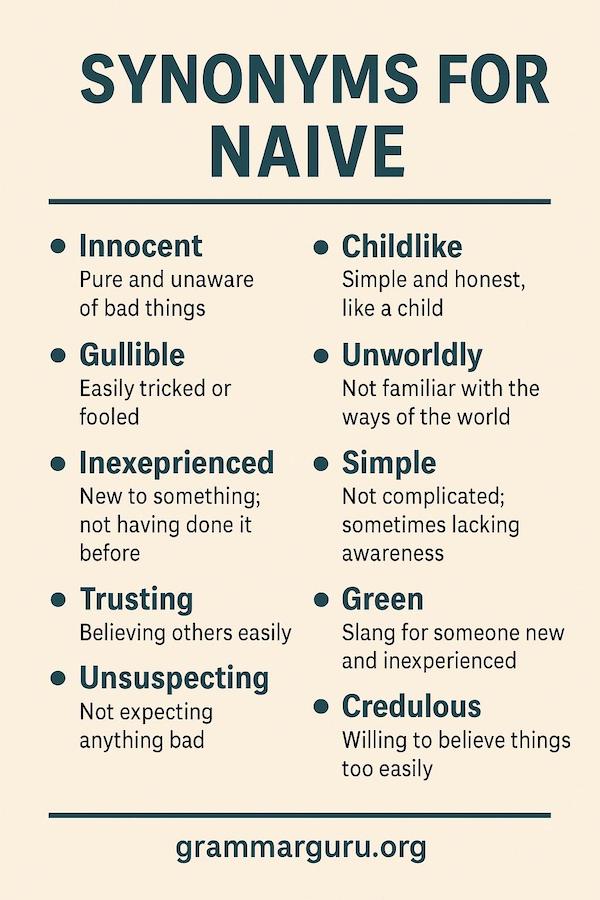Have you ever heard someone being called “naive”? It’s a common word, but many people aren’t sure what it really means—or what other words they could use instead. Have you ever needed a good naive synonym but weren’t sure which one to use? In this blog, we’ll break down the definition of naive, explore its meaning, and share a list of simple, useful synonyms.
What Does “Naive” Mean?
Naive is an adjective. It describes a person who shows a lack of experience, understanding, or wisdom. A naive person often trusts others too easily or believes things without questioning them. This doesn’t mean they are foolish—it just means they might not yet know how the world really works.
Naive Definition (Simple)
Naive: someone who is too trusting or innocent because they don’t have much experience.
Examples of Naive in a Sentence
- She was naive to think everyone at the company had good intentions.
- His naive charm made people want to help him.
In both cases, the person isn’t stupid—just inexperienced or overly trusting.
Naive Synonym
There are many words that mean something similar to naive. These are called synonyms. Here are some of the most common:
Common Naive Synonyms:
- Innocent – Pure and unaware of bad things in the world.
- Gullible – Easily tricked or fooled.
- Inexperienced – New to something; not having done it before.
- Trusting – Believing others easily.
- Unsuspecting – Not expecting anything bad to happen.
- Childlike – Simple and honest, like a child.
- Unworldly – Not familiar with the ways of the world.
- Simple – Not complicated; sometimes used to mean lacking awareness.
- Green – Slang for someone new and inexperienced.
- Credulous – Willing to believe things too easily.

When to Use a Naive Synonym
Using a synonym depends on the tone you want. For example:
- “Gullible” often sounds more negative.
- “Innocent” can sound kind or gentle.
- “Inexperienced” is more neutral.
Always choose the word that fits your message best.
See more:
